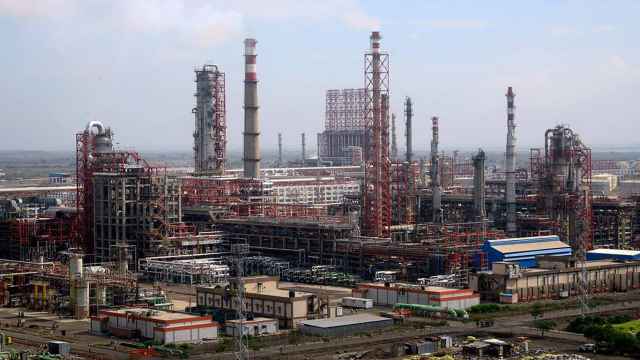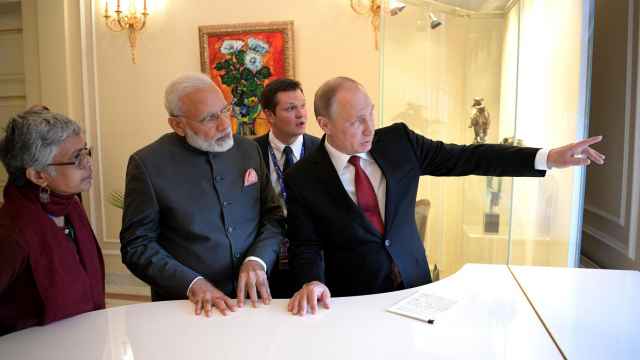Russia has redirected its oil exports from Europe to China and India, Deputy Prime Minister Alexander Novak said Wednesday, almost two years after Moscow was hit by Western sanctions over the Ukraine conflict.
After President Vladimir Putin sent troops to Ukraine in February 2022, Western countries hit Russia with a slew of sanctions including a European Union embargo on its seaborne oil deliveries.
"We previously supplied a total of 40-45% of oil and oil products to Europe," said Novak, who is in charge of energy policy.
"This year, we expect the figure not to exceed 4-5% of total exports," Novak said in a televised interview.
As it was losing much of its market share in Europe, Moscow pivoted to other buyers including China.
"China — whose share (of oil exports) has grown to 45-50% — and India have become our main partners in the current situation," Novak said.
India, which previously received almost no shipments, has become a major buyer.
"In two years the total share of supplies to India has increased to about 40%," Novak said.
India has been able to snap up discounted crude from Russia before refining it and selling it to European customers, reports say.
While these sales are legal, critics say they amount to a backdoor route for Russian oil and undermine the impact of the sanctions.
Russia has also had to find new markets for its natural gas exports as Moscow cut its exports to EU nations, which have also looked for new suppliers.
Novak said the Russian energy industry had successfully developed despite multiplying sanctions in 2023.
Novak said he expected Russian oil and gas revenues will amount to almost 9 trillion rubles ($98 billion) this year — a level similar to before the offensive in 2021.
The oil and gas industry accounts for 27% of Russia's gross domestic product, according to Novak, bringing in 57% of Russia's export revenues.
Novak said Russia was open to other buyers.
"There are a lot of people who want to buy Russian oil. These are Latin American countries, African countries, and other countries of the Asia-Pacific region."
A Message from The Moscow Times:
Dear readers,
We are facing unprecedented challenges. Russia's Prosecutor General's Office has designated The Moscow Times as an "undesirable" organization, criminalizing our work and putting our staff at risk of prosecution. This follows our earlier unjust labeling as a "foreign agent."
These actions are direct attempts to silence independent journalism in Russia. The authorities claim our work "discredits the decisions of the Russian leadership." We see things differently: we strive to provide accurate, unbiased reporting on Russia.
We, the journalists of The Moscow Times, refuse to be silenced. But to continue our work, we need your help.
Your support, no matter how small, makes a world of difference. If you can, please support us monthly starting from just $2. It's quick to set up, and every contribution makes a significant impact.
By supporting The Moscow Times, you're defending open, independent journalism in the face of repression. Thank you for standing with us.
Remind me later.






